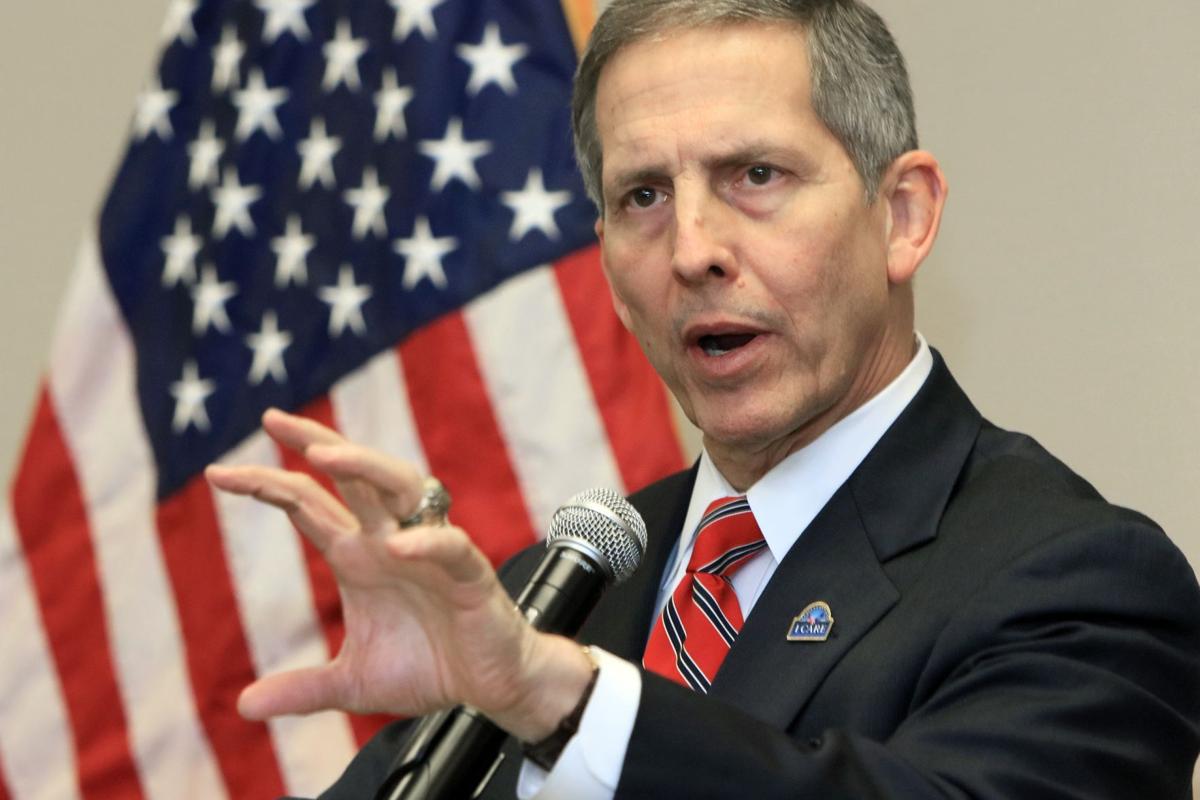The second in command at the Department of Veterans Affairs says he’ll hold staffers at the Southern VA Health Care System in Tucson accountable for alleged falsification of patient wait-time records that surfaced in a recent report.
But the broader remedy is to improve scheduling and staffing issues, Deputy Veterans Affairs Secretary Sloan Gibson said during a visit to the Tucson VA hospital on Monday.
Gibson’s visit comes as the Department of Veterans Affairs is still dealing with the fallout of a scandal over dishonest scheduling practices and dangerously long wait times for veterans seeking care, spawned by allegations against the Phoenix VA hospital about two years ago.
The Tucson VA hospital also has been criticized for long patient wait times, and last month a report released by the veterans agency’s Office of Inspector General confirmed whistleblower complaints that some employees were prompted to falsify wait-time records in 2013 and 2014.
Citing “inconsistencies” in scheduling, Gibson said the agency is still looking to improve its scheduling processes and add staffing where needed to avoid long wait times.
“Where there has been misconduct, we will hold people accountable for that,” Gibson said during a brief news conference.
But he said holding staffers accountable for their misdeeds poses another issue for the VA, whose employees are protected by the federal merit system.
Gibson cited a recent ongoing case where the VA tried to remove a staffer, in which he personally gave four hours of testimony as part of a weeklong appeals hearing in the quasi-judicial process before the U.S. Merit Systems Protection Board.
Gibson said he has read the Inspector General’s report on the Tucson records case and an investigation is ongoing.
He said he has been impressed with the staff and operations at the Tucson VA hospital, even though according to internal VA scoring it ranks relatively low on several key ratings, including mortality of acute-care patients and infections.
Gibson said the Tucson VA hospital is working to correct those problems.
“Access has improved here in Tucson during the last two years — improved meaningfully,” he said.
He cited an average four-day wait for primary care, six days for specialty care and two to three days for mental-health care, noting that a new 25-bed residential treatment center is scheduled to open at the Tucson VA hospital this spring.
He acknowledged the Tucson facility has had some problems filling certain positions, but noted that the job turnover for registered nurses here is relatively low, about 7 percent.
The VA’s most recent monitoring report, called Strategic Analytics for Improvement and Learning (SAIL) shows a third-quarter 2016 nurse turnover rate here of 7.4 percent, which puts it in the middle of facility ratings.
Overall, the Tucson VA hospital has a rating of two out of a possible five stars, under an internal star rating system based on the publicly available SAIL data, according to data obtained by USA Today, which revealed the non-public star rating system this week. The Phoenix VA hospital carries a rating of one star.
Often wait times are made longer by staffing shortages in specific areas, Gibson said, citing the ongoing need for more radiology and echocardiogram technicians in Tucson.
The Tucson VA hospital has beefed up its primary-care staff, Gibson said, and the hospital has only three open primary-care positions, including one doctor.
Gibson acknowledged the system must improve and that the agency has been under intense scrutiny from Congress.
The VA’s leadership has embarked on a dozen system-wide improvement initiatives and has pushed the 146 VA hospitals to share information on “best practices” like using local providers for “gap” care when staffing is short, double-scheduling for some routine visits while keeping a few appointment times open each day.
Gibson said he and other VA officials have been meeting with President-elect Donald Trump’s transition team, and the team came away impressed with the scope of the agency and the improvement efforts.
“This has changed the system as the VA has never done before,” he said. “Changing a culture doesn’t happen overnight.”





